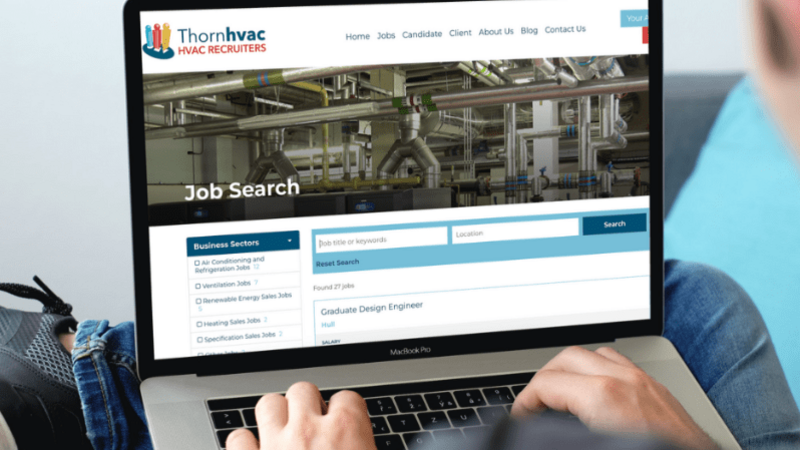Connecting...
How can engineering graduates improve their chances of a career in the booming HVAC market?
over 2 years ago

With the global HVAC market expected to grow by over 5% year on year, reaching a value of $309.62 billion by 2028, there is huge interest from ambitious engineering graduates who are keen to gain a foothold in the industry. Growth is largely being driven by an appetite for greater energy efficiency, smart monitoring of indoor environments through the integration of IoT technology with HVAC systems and major modernisation and construction projects.
So how can engineering graduates launch a career in the HVAC sector? At Thornhvac we specialise in helping companies that are at the forefront of HVAC innovation to find the right talent to support their growth plans. This gives us a unique insight into the qualities and skills they are looking for during the hiring process. We’re sharing some of this knowledge in this article to help engineering graduates better understand the opportunities available to them and how to maximise their chances of success when applying for roles.
Why choose a career in HVAC?
The term “HVAC” covers heating, ventilation and air conditioning and encompasses many high growth industries in the building management sector, such as smart building controls and renewables. There’s no doubt that this is an exciting space to work in, particularly as buildings of all types and sizes strive to meet the challenges of decarbonisation in the face of climate change. Engineers are at the forefront of innovation in the sector, developing solutions that will help us towards a cleaner and greener future.
The HVAC sector offers huge opportunities for graduates to apply the skills they have developed during their studies and use them to find practical solutions to real life challenges. Manufacturers are looking for a wide range of skills and they offer diverse opportunities to work in areas that form the focus of study for many engineering studentssuch as fluid dynamics, thermodynamics, heat exchanges, heat transfer and refrigeration cycles.
Salaries are highly attractive for candidates whose skills match the needs of a business that is innovating in a particular field. They vary according to the role, company and location but a graduate design engineer can expect to start their career earning upwards of £30,000 plus an attractive package of benefits. Career progression can be rapid with senior mechanical design engineers typically earning over £70,000 plus bonus and benefits. These salaries are just a guide and it’s important to remember that in the current market, where candidates are scarce, negotiations can lead to some very attractive offers being made.
What are employers looking for?
Securing your first role in an industry is always the hardest. Employers are taking a risk when they employ a new graduate and they will want to feel reassured that you can add value to their business. Most people applying for an HVAC engineering job will have a mechanical engineering degree, so it’s important to differentiate. Spend some time researching the role you are applying for, as well as the company, to understand how your particular skills and areas of study can benefit the employer. Perhaps you worked on thermodynamics projects at university and gained specific experience that could be applied to their product development. The more relevant and detailed you can be in both your CV and interview, the better your chance of success.
An employer will ideally be looking for someone who can hit the ground running. If you have any real world experience in the field you’re applying to work in, make sure you talk about it. Prepare to share as much information as you can about real life projects you have worked on and contributed to. This is also a chance to show a willingness to learn and an ability to work as a team.
Finally, anyone hiring for an HVAC engineering job will be looking beyond the degree to find out whether the person in front of them will be a good fit for their team and culture. With almost all engineering roles involving a great deal of collaboration between teams and departments, employers put a huge amount of emphasis on soft skills. We have written a whole article on the top soft skills for ambitious engineers and an in depth blog about how soft skills can help building services design engineers develop their career.
